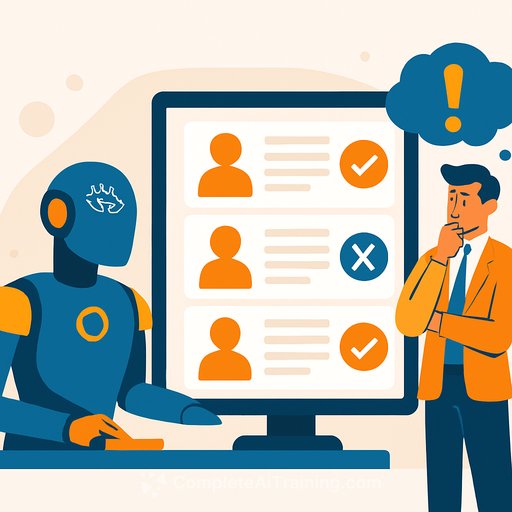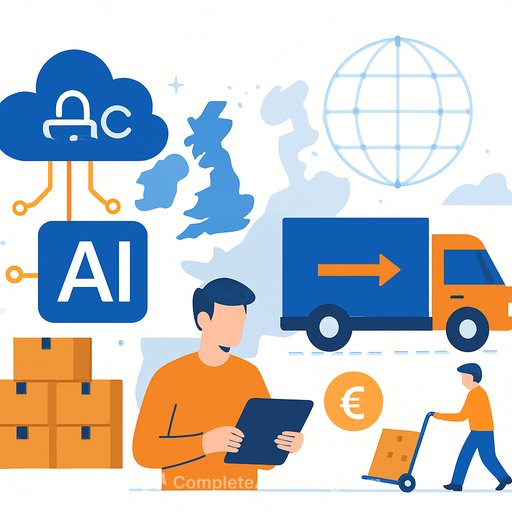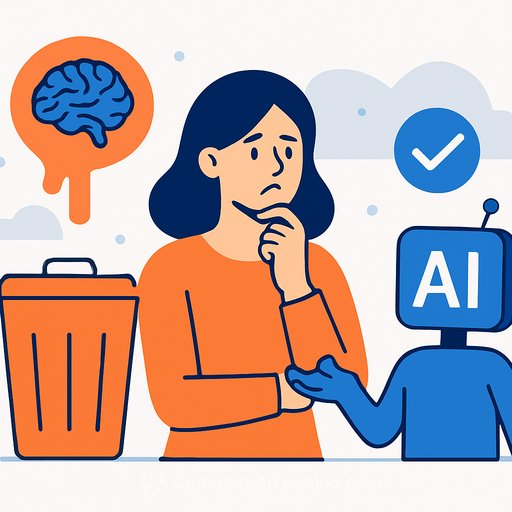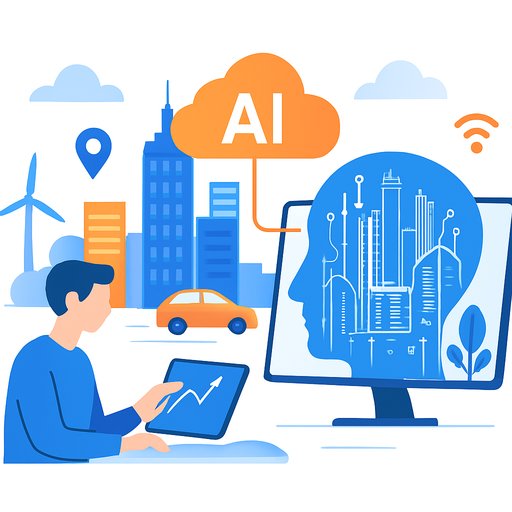Why Relying on AI for Your Top Personnel Decisions Can Backfire
More than half of people managers now use AI to handle critical decisions about their teams—not just routine tasks. Surveys show that 78% of managers use AI to decide raises, 77% for promotions, 66% for layoffs, and 64% for terminations. Even more concerning, 1 in 5 managers often let AI make final calls without any human review.
This rapid adoption signals a major shift in how we manage people, but it’s happening with little oversight or training. Most managers using AI haven’t received any formal guidance on how these systems work or their potential pitfalls.
The Human Element is Still Crucial
AI can certainly provide valuable data insights, but it lacks empathy, context, and judgment. It’s only as good as the data it’s trained on, which may carry biases or errors. If the AI learns from flawed historical data, it will simply replicate those mistakes.
For example, AI-powered resume screening tools often prioritize candidates based on patterns in past hiring decisions. This can unintentionally exclude qualified applicants who don’t have conventional backgrounds or job titles. Blindly trusting AI outputs without question risks perpetuating unfair biases.
Why Training Matters
Many managers trust AI without understanding how it operates or where it may fail. This blind faith can lead to poor decisions and unintended consequences. The right approach is to treat AI like any other business tool—use critical thinking and demand transparency about its assumptions and limitations.
Think of it this way: you wouldn’t approve a budget based on a financial model you don’t understand. The same applies to AI-driven personnel decisions. Without proper training, managers are effectively outsourcing their judgment, which is dangerous for both the company and employees.
Transparency Builds Trust
Employers often hesitate to explain how they use AI, fearing legal issues or employee backlash. But silence breeds confusion and mistrust. When employees don’t know how AI influences decisions, they fill in the gaps themselves—usually imagining the worst.
Clear communication about AI’s role—and assurance that humans remain involved in key decisions—helps maintain trust and morale. It’s not necessary to divulge every technical detail, but managers should be ready to answer basic questions about AI’s use in their processes.
Ethical AI Use Protects Your Culture and Legal Standing
Implementing AI without ethical safeguards can expose organizations to legal risks and damage workplace culture. Companies must take responsibility for how AI impacts employees and ensure fairness and accountability.
- Provide training on AI tools and their limits.
- Maintain human oversight in all critical personnel decisions.
- Communicate openly with employees about AI’s role.
- Regularly audit AI outputs for bias or errors.
Managers who combine AI’s efficiency with thoughtful oversight will make better decisions, protect their teams, and build stronger organizations.
For managers interested in developing AI skills and learning how to integrate these tools responsibly, Complete AI Training offers practical courses focused on AI applications in the workplace.
Your membership also unlocks:






